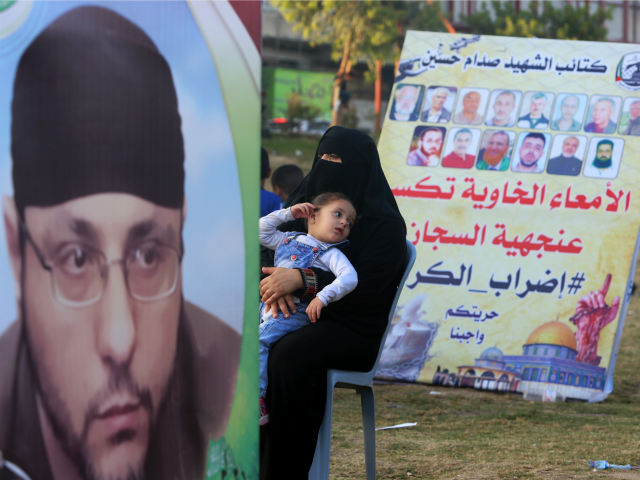A senior source in the Palestinian Authority has told Breitbart Jerusalem that Palestinian security forces were unable to convince activists claiming to support prisoners on hunger strike in Israeli jails since last month to abandon a protest tent that was erected near the entrance to the Church of the Nativity in Bethlehem.
President Trump is due in Bethlehem on Tuesday for a meeting with Palestinian Authority President Mahmoud Abbas.
Clashes broke out not far from the tent between Palestinian security forces and the young Palestinian protesters showing their support for the prisoners on hunger strike. The clashes eventually spread to one of the checkpoints between Bethlehem and Jerusalem, where a young Palestinian was shot by Israeli soldiers and policemen after he tried to stab an Israeli soldier.
Since it was announced that the U.S. president plans to visit Bethlehem, the activists announced the beginning of a campaign purportedly in support of the Palestinian prisoners that saw the pitching of the tent outside the Church of the Nativity as a way to get the attention of the American president and international media. Israel says the protesters are politically motivated.
According to the senior Palestinian source, “We’re trying and we’ve been trying for the last few days to convince the activists to abandon the idea of a protest tent for the prisoners, but political calculations led to persistence from the activists.”
The source also mentioned that almost all the prisoners on strike are supporters of senior Fatah official Marwan Barghouti, himself a prisoner and the leader of the hunger strike. Barghouti is serving five life sentences for the murder of Israelis and was a planner of the Second Palestinian Intifada, the terrorist war aimed at Israeli civilians.
The source said that the presence of the protest tent may have been a consideration that led to the restriction of Trump’s visit in Bethlehem, a visit that was originally mean to last for three hours but was eventually scaled back to less than an hour, leading to disappointment among the Palestinians.
“We understood from the American team trusted with the president’s security that the presence of the tent causes them a security headache, but it’s not certain that’s the main reason for reducing the hours of the visit in the city.”
The source said that Palestinian Intelligence Chief Majed Faraj, originally from the refugee camp of Dheisheh in Bethlehem, was personally involved in the efforts to put pressure on the protesters so that they would give up on the protest tent, but was unsuccessful.

COMMENTS
Please let us know if you're having issues with commenting.